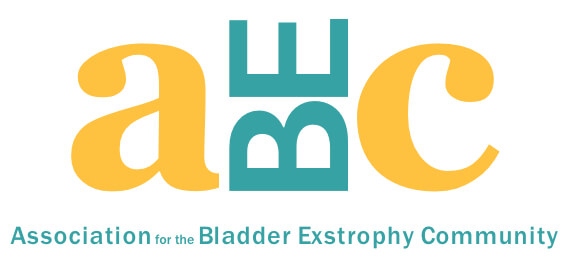
The future of bladder exstrophy care in China
Laparoscopic pediatric urologist Dr. Zhou Huixia (周辉霞) highlights gaps in bladder exstrophy care that exist across China, and her plans to designate People’s Liberation Army General Hospital, Beijing as a regional center of excellence for exstrophy surgery.
(Left) Dr. Zhou Huixia with Dr. Rakesh Joshi at the Operative Workshop on Exstrophy in Ahmedabad, India (Right) Researcher-surgeon Dr. Wei Cheng and A-BE-C executive director Pamela Block with Dr. Zhou Huixia educating hospital staff in Beijing about bladder exstrophy.
Bladder exstrophy care in China today
Dr. Zhou Huixia is the first to acknowledge that when it comes to the treatment of bladder exstrophy, China’s medical system has room for improvement. Larger centers like Beijing and Shanghai are well-equipped to treat the condition, but in the less-developed autonomous regions, like Tibet and the far-west province of Xinjiang, children born with bladder exstrophy have far less access to necessary medical care. Unfortunately, it is these autonomous regions that see the country’s highest concentration of children born with bladder exstrophy.
When asked about the reason for China’s uneven distribution of bladder exstrophy cases, Dr. Zhou hypothesizes that, because parents in more developed regions have better access to pre-natal screening, bladder exstrophy pregnancies in those areas are often terminated. Parents in the country’s autonomous regions have far less access to screenings and usually only learn about a child’s exstrophy at birth. Bladder exstrophy patients in these regions also have little, if any, access to the specialized surgery and treatment they need. As a result, children born with the condition are often sent to orphanages or simply left untreated.
Despite these challenges, Dr. Zhou believes China is well-placed to close its gaps in exstrophy care—and she has made it her mission to do just that.
Establishing regional centers of excellence for bladder exstrophy surgery
Dr. Zhou is well-placed to lead the way in transforming China’s bladder exstrophy care system. Dr. Zhou is Head of Pediatric Urology at People’s Liberation Army General Hospital, Beijing (PLA General). The 2000-bed facility is run by the army, but it serves the general public. In 2009, she established a 40-bed pediatric urology unit at PLA General and has since undergone intensive training in bladder exstrophy surgery, including six months spent learning alongside exstrophy experts at Children’s Hospital of Philadelphia.
Looking to the future in China, Dr. Zhou would like to see a few bladder exstrophy centers emerge across the country, in Beijing and Shanghai, as well as one additional center closer to the areas where bladder exstrophy is most prevalent. She sees the importance of concentrating care for the rare condition in just a few key locations.
“With bladder exstrophy patients concentrated in fewer centers,” Dr. Zhou explains, “greater collaboration and knowledge sharing can take place.”
Dr. Zhou hopes her unit at PLA General Hospital can lead the way in this evolution. To this end, she has designated the hospital as a regional referral center for bladder exstrophy surgeries and is taking steps for the facility to meet the criteria as a center of excellence in exstrophy care.
By following the model established at Civil Hospital in Ahmedabad, India—a leading center of excellence in exstrophy care—she is confident China can close its current gaps in care and ensure that every child born with exstrophy in the country receives treatment, regardless of the region in which they are born.
The importance of international collaboration
Dr. Zhou also understands how important it is for physicians like herself to collaborate and share knowledge with colleagues around the world.
“Because bladder exstrophy is a rare condition,” Dr. Zhou says, “it is difficult for pediatric urologists to be exposed to the volume and variety of patient conditions required to build real expertise.” Even a large hospital like PLA General only sees an average of five new exstrophy cases each year.
Going forward, Dr. Zhou intends to work more closely with experts like Dr. Wei Cheng (郑伟), who was recently appointed as Visiting Professior to PLA General Hospital. The renowned surgeon-scientist conducted research that led to the discovery of the gene and mechanism responsible for bladder exstrophy and continues to work toward a better understanding of this congenital abnormality.
Dr. Zhou also says that events like the annual Operative Workshop on Exstrophy, organized in Ahmedabad by A-BE-C, are a vital part of this collaborative learning process.
“The operative workshop offers a unique and very concentrated opportunity to learn first-hand from world experts,” Dr. Zhou points out. While at the workshop, she learned more about the comprehensive management of patients, particularly the protection of the kidneys, and increased her technical knowledge regarding re-do operations.
During the workshop in Ahmedabad, Dr. Zhou was so inspired by the collaborative work of A-BE-C that she immediately took the first steps to establish a support group for bladder exstrophy patients and families in China. Her ambition is for China to have a more comprehensive approach to the treatment of bladder exstrophy, and she is determined to be a driving force behind this initiative.






